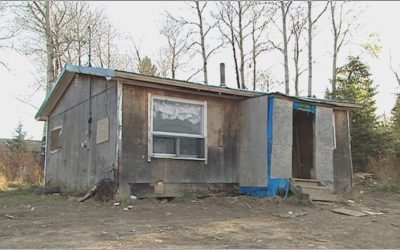Manitoba is on the right side of the debate when it comes to matrimonial property rights for First Nations living on reserve.
Aboriginal Affairs Minister Bernard Valcourt was forced to apologize to Niki Ashton recently for telling her during a House of Commons debate to “listen to your father” on the issue of Bill S-2, a bill granting equal division of property for spouses in the case of marital breakdown on a First Nations reserve.
The mention of her father is a reference to Steve Ashton, a provincial cabinet minister. However, Manitoba’s NDP government unanimously passed a resolution in December 2012 in support of Bill S-2.
So, while the statement could come off as a tad paternalistic, the thrust was that Ashton should join Manitoba New Democrats in supporting this long overdue piece of legislation.
Reserves fall outside of the purview of provincial matrimonial laws, so there is no provision for an equal division of marital assets after divorce. The federal Indian Act does not include any mention of matrimonial property. Most property is held in the name of males within First Nations reserves, so women are disproportionately affected by this legislative gap.
A few years ago, the Frontier Centre for Public Policy polled First Nations band members on the Prairies on the issue. For our survey, we questioned 582 women and 505 men.
As part of our annual Aboriginal Governance Index, we asked, “If a couple on a reserve separate or divorce, should each spouse have a right to half the money and possessions that they own?”
About 77% of the 1,091 respondents said either “definitely” or “perhaps.”
Our smaller response among 21 Manitoba bands also revealed an affirmative response. Just more than 76% said either “definitely” or “perhaps.”
So, the move towards equal division of marital property has support among Prairie bands collectively and among Manitoba bands.
Are First Nations communities doing enough to stop violence against women on-reserve? We also asked, “Is the band government doing all it can to protect women against violence?”
In our survey, 42% said either “Not Really” or “Never.” This is a troubling minority.
Within our Manitoba sample, almost 44% said either “Not Really” or “Never.”
On the entire issue of the position of women on reserves, we also asked, “Is the band government doing all it can to help women be involved in community decision-making?”
On this topic, there is progress. In all the Prairie bands, 56% said, “Definitely” or “Perhaps.” However, almost 34% said either “Not Really” or “Never.”
Within Manitoba, almost 53% said either “Definitely” or “Perhaps,” whereas 39% said either “Not Really” or “Never.”
This shows there is still much work to do. Anyone looking at First Nations politics in Manitoba will notice that it is still largely a male-dominated world.
So, it still stands to reason why the NDP’s Status of Women critic is challenging legislation that will serve to better protect mainly women on reserves.
The time for delaying on fundamental justice for First Nations women is over. This issue of equal rights should transcend party lines. Let’s hope the federal NDP listens to the wisdom of the Manitoba legislature on this issue.


